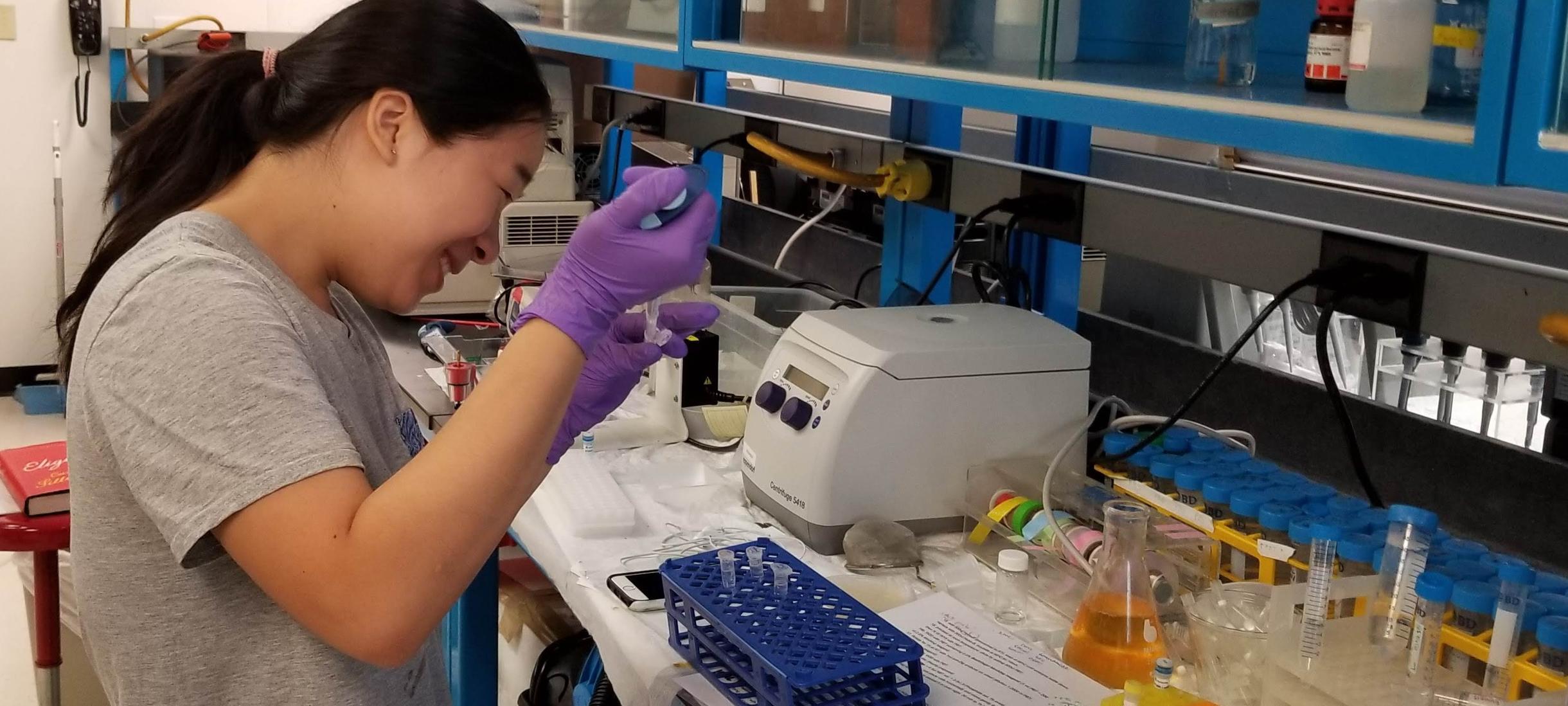Mission, Values and Goals

Our Philosophy and Learning Goals
Biology is a dynamic and vibrant discipline, constantly evolving as technological advances provide new tools to solve previously unsolvable biological puzzles. Biologists explore life at all levels of organization (molecular, cellular, organismal and ecosystem) with the ultimate goal of producing an integrated picture of the complexities of living organisms. Our course offerings reflect the diversity of biology, as well as the breadth and timeliness of faculty research interests. Our curriculum is designed to achieve the following learning outcomes:
- Articulate the relevance of biology in your life and the lives of others and evaluate ethical and public policy issues of biological significance.
- Collaborate successfully to solve problems in an interdisciplinary team.
- Identify, discuss and explain the fundamental principles and concepts of biology from molecules to ecosystems.
- Recognize and explain the evolutionary basis of biology and the dynamic nature of life.
- Summarize and assess new biological problems and use critical thinking and problem-solving skills to arrive at defensible conclusions within the framework of current knowledge.
- Frame focused biological questions, to formulate hypotheses and test them through well-designed experiments, to quantitatively analyze and interpret data, and to model, simulate, and statistically evaluate data.
- Effectively communicate both orally and in writing about biological topics with the general public and with discipline specific audiences.
- Examine, analyze, interpret and critique the primary biological literature.
- Implement and safely apply a broad array of experimental research skills.
We hope that you will enroll in our classes, enjoy learning with us and take the opportunity to work alongside us in our labs.
